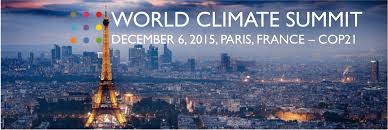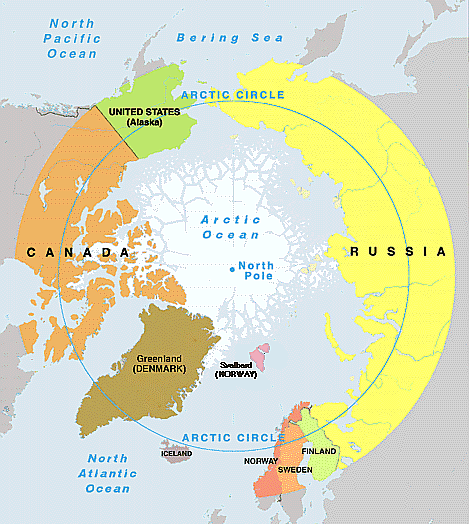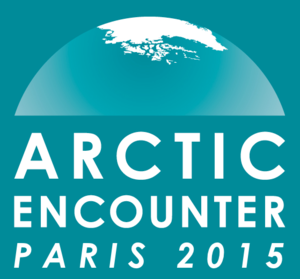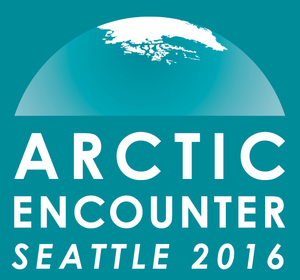|
|
|
|
|
|
|
|
Today's Congressional Action:
The House and Senate are in session and not expected to consider Arctic legislation.
|
The Weatherman at the End of the World. William Wells lives and works at what may be the nation's most remote weather station -- 300 miles off the west coast of mainland Alaska, 500 miles off the east coast of Siberia in the Bering Sea. Even on remote St. Paul Island, the station is off by itself, a few miles from the village of 400 people who call St. Paul home. Each afternoon, Wells walks from his office to a two-story-tall garage, where he fills up a 6-foot-wide balloon with hydrogen. Alaska Dispatch News
In Rural Alaska, a New Approach to Fighting Suicide Emerges. For a week in November, people from remote Alaska villages holed up at an Oregon retreat to reset their thinking on the crushing problem of suicide. Now they are gearing up to try a new way of stopping people from killing themselves. This method is infused in research and structured so that village residents - not outsiders - decide what to do next. Alaska Dispatch News
 LEO Network Helps Residents of Alaska's Bush Monitor Health, Environmental Problems. "People are very tuned in to the food that they eat, the time of year that they harvest. What the weather conditions should be," says Mike Brubaker. He was referring to the people who live in remote areas around Alaska who know their environment better than just about anyone. And that's why the Local Environmental Observer, or LEO, Network, has become such an important tool for detecting emerging health threats in those areas. KUAC LEO Network Helps Residents of Alaska's Bush Monitor Health, Environmental Problems. "People are very tuned in to the food that they eat, the time of year that they harvest. What the weather conditions should be," says Mike Brubaker. He was referring to the people who live in remote areas around Alaska who know their environment better than just about anyone. And that's why the Local Environmental Observer, or LEO, Network, has become such an important tool for detecting emerging health threats in those areas. KUAC
North Slope Borough Issues Guidelines on Health Impacts from Development. From oil and gas to mining, large-scale development projects have the potential for serious consequences, both positive and negative, for local communities. For decades, the Arctic Slope has been at the center of debate over the pros and cons of such development. Now, the North Slope Borough has released a guiding document meant to help steer and standardize those conversations. Alaska Dispatch News
Report: Aboriginal Residents, Northerners Most at Risk for Homicide in Canada. Aboriginal residents made up nearly a quarter of Canada's homicide victims in 2014 even though they make up only about 5 percent of Canada's population, and the nation's highest homicide rates were in the country's sparsely populated northern territories, said a recent report issued by the government agency Statistics Canada. Overall, Canada's total 516 homicides in 2014 gave the nation a rate of 1.45 victims per 100,000 people -- the lowest rate since 1966. Of those victims, 117 were identified as aboriginal, and another 17 were of undetermined ethnicity, and possibly aboriginal, according to the report, released last week. Alaska Dispatch News
 Arctic Delegation Heads to Paris Climate Talks. A delegation of indigenous leaders from the world's Arctic countries head to Paris this week for the United Nations conference on climate change. They'll join hundreds of world leaders, scientists, and stakeholders at the 21st Conference of Parties, also known by its abbreviation, COP21, and spend the better part of two weeks talking about the effects of climate change on the world and its inhabitants. Alaska Dispatch News Arctic Delegation Heads to Paris Climate Talks. A delegation of indigenous leaders from the world's Arctic countries head to Paris this week for the United Nations conference on climate change. They'll join hundreds of world leaders, scientists, and stakeholders at the 21st Conference of Parties, also known by its abbreviation, COP21, and spend the better part of two weeks talking about the effects of climate change on the world and its inhabitants. Alaska Dispatch News
Nunavut Weights in as Climate Talks Enter Final Stretch. As global climate change talks in Paris enter their second - and last - week, the Canadian delegation, which includes representatives from the Government of Nunavut, the Inuit Circumpolar Council and Inuit Tapiriit Kanatami, has geared up its presence. Nunavut Premier Peter Taptuna said Dec. 6 that he had attended briefings as well as a meeting with other Canadian premiersattending the United Nations Framework on Climate Change meetings. It's called COP 21, because it's the 21st time there's been such "a conference of the parties." Nunatsiaq Online
US Proposes Binding International Pact for Arctic Ocean Fishery. For now, there's no commercial fishery in the High Arctic's central Arctic Ocean. But representatives of Arctic nations and indigenous groups who met in Washington D.C. last week still want to plan ahead. "Healthy and abundant fish stocks are essential to the cultural, nutritional and economic well-being and way of life of the Inuit communities and peoples who live along river drainages and coasts," said Inuit Circumpolar Council-Canada President Duane Smith, who attended the meeting, in a Dec. 3 news release. Nunatsiaq Online
 Meeting on High Seas in the Central Arctic Ocean: Chairman's Statement. Delegations from Canada, the People's Republic of China, the Kingdom of Denmark, the European Union, Iceland, Japan, the Republic of Korea, the Kingdom of Norway, the Russian Federation and the United States of America met in Washington, D.C. from 1-3 December 2015 to discuss their common interest in preventing unregulated commercial fishing in the high seas area of the central Arctic Ocean. The meeting followed the signing of the Declaration Concerning the Prevention of Unregulated High Seas Fishing in the Central Arctic Ocean by Canada, the Kingdom of Denmark in respect of Greenland, the Kingdom of Norway, the Russian Federation and the United States of America on 16 July 2015 ("the Declaration"). US State Department Meeting on High Seas in the Central Arctic Ocean: Chairman's Statement. Delegations from Canada, the People's Republic of China, the Kingdom of Denmark, the European Union, Iceland, Japan, the Republic of Korea, the Kingdom of Norway, the Russian Federation and the United States of America met in Washington, D.C. from 1-3 December 2015 to discuss their common interest in preventing unregulated commercial fishing in the high seas area of the central Arctic Ocean. The meeting followed the signing of the Declaration Concerning the Prevention of Unregulated High Seas Fishing in the Central Arctic Ocean by Canada, the Kingdom of Denmark in respect of Greenland, the Kingdom of Norway, the Russian Federation and the United States of America on 16 July 2015 ("the Declaration"). US State Department
Scientists Gather to Discuss Arctic Under Shadow of Changing Climate. Top Arctic scientists will gather in Vancouver this week to discuss everything from caribou populations to the high cost of food - but underlying it all is the unsettling speed with which the northern climate is changing. "It's a real challenge," said Ross Brown, an Environment Canada researcher who is to speak this week at the ArcticNet conference. CBC News
|
Legislative Action
No Arctic legislation was formally considered yesterday.
|
|
Future Events
The State Department will host this event, streamed online, in coordination with the US Center for COP21.
Moderator: Christy Goldfuss, Managing Director at the White House Council on Environmental Quality
Speakers: Dr. John Holdren, Assistant to the President for Science and Technology; and Dr. Patrick Taylor, Research Scientist, National Aeronautics and Space Administration
Arctic Encounter Paris (AEP 2015), December 11-12, 2015 (Paris, France) (During the UN Convention on Climate Change - COP21). The Arctic Encounter Paris (AEP) will take place at the French Senate at Luxembourg Palace and the  French Military College, ╔cole Militaire, in Paris, France, on the final days of the monumental United Nations Convention on Climate Change (COP21) where thousands of global citizens and government delegates will be gathered to deliberate the world's response to our changing planet in Paris. The AEP is the only Arctic policy and economics side event currently planned to take place during the UN Convention. A reception will take place following the closing panel. French Military College, ╔cole Militaire, in Paris, France, on the final days of the monumental United Nations Convention on Climate Change (COP21) where thousands of global citizens and government delegates will be gathered to deliberate the world's response to our changing planet in Paris. The AEP is the only Arctic policy and economics side event currently planned to take place during the UN Convention. A reception will take place following the closing panel.
 Fall meeting of the American Geophysical Union, December 14-18, 2015 (San Francisco, California). The 48th meeting of the union brings together nearly 24,000attendees, and lots of Arctic research results. The scientific program is here. There will be several Arctic-related "Town Hall" meetings, including those sponsored by NASA, DOE, NSF, ISAC, IARPC, and SEARCH. Fall meeting of the American Geophysical Union, December 14-18, 2015 (San Francisco, California). The 48th meeting of the union brings together nearly 24,000attendees, and lots of Arctic research results. The scientific program is here. There will be several Arctic-related "Town Hall" meetings, including those sponsored by NASA, DOE, NSF, ISAC, IARPC, and SEARCH.
The conference will be devoted to an opening of new academic semester and an upcoming 25 years cooperation between University of Nordland and Baltic State Technical University (St. Petersburg). On the second day the educational project's results "Arctic Bridge: Cooperation on PhD Education and Research Training in the field of Management in Extractive Industries in the High North" will be presented.
"Arctic Matters" day at the National Academy of Sciences, January 14th, 2016 (Washington, DC, USA) This symposium is part of an ongoing initiative of the National Academies of Science Polar Research Board to expand public understanding of why the dramatic changes affecting the Arctic region ultimately matter to us all. The agenda features engaging presentations and discussions with top Arctic science and policy experts, and displays and interactive exhibits that illustrate Arctic change and its global impacts. The event is free and open to the public. There are sponsorship opportunities, and a call for exhibitor applications (by Oct.31, 2015). Audience space is limited, so register today; and please encourage your friends, neighbors, and colleagues to participate-as our goal is to reach well beyond the small circle of specialists who typically attend Arctic-themed events in the DC area. The U.S. Arctic Research Commission is helping to sponsor this event.
 Building upon the preceding Arctic Encounter event in Paris, the third annual Arctic Encounter Symposium (AES) in Seattle, Washington will convene policymakers, industry leaders, and leading experts to confront the leading issues in Arctic policy, innovation, and development. As the largest annual Arctic policy event in the United States, the AES mission is to raise awareness, engage challenges, and develop solutions for the future of a region and a people. The two-day program includes two keynote luncheons, expert plenary sessions, break out sessions, a networking cocktail reception and seated dinner. A closing reception will take place at the conclusion of the program. Building upon the preceding Arctic Encounter event in Paris, the third annual Arctic Encounter Symposium (AES) in Seattle, Washington will convene policymakers, industry leaders, and leading experts to confront the leading issues in Arctic policy, innovation, and development. As the largest annual Arctic policy event in the United States, the AES mission is to raise awareness, engage challenges, and develop solutions for the future of a region and a people. The two-day program includes two keynote luncheons, expert plenary sessions, break out sessions, a networking cocktail reception and seated dinner. A closing reception will take place at the conclusion of the program.
2016 Arctic Frontiers, January 24-29, 2015 (Tromso, Norway).The Arctic is a global crossroad between commercial and environmental interests. The region holds substantial natural resources and many actors are investigating ways to utilise these for economic gain. Others view the Arctic as a particularly pristine and vulnerable environment and highlight the need to limit industrial development. Arctic Frontiers 2016 will discuss the balance between resource utilisation and preservation, and between industrial and environmental interests in the Arctic. Envisioning a well-planned, well-governed, and sustainable development in the Arctic, how can improved Arctic stewardship help balance environmental concerns with industrial expansion? How can the industrial footprints from future business activities be minimised? And last, but not least, what role will existing and emerging technologies play in making industrial development profitable and environmentally friendly, securing a sustainable growth scenario for Arctic communities?
16th Alaska Marine Science Symposium, January 25-29, 2016 (Anchorage, AK, USA). No detailed info yet (common guys...), but a valuable meeting, focusing on research results from the Gulf of Alaska, the Bering Sea, and the Arctic Ocean. Good, in-depth, research from Alaska's marine regions. AMSS.
5th Annual Fletcher Opening Arctic Conference, March 12, 2016. The Opening Arctic Conference builds on the Fletcher School's Warming Arctic International Inquiry series, to bring together high-level thought leaders from across disciplines, Fletcher's hallmark. Staged annually, Fletcher's event continues to address the foreign policy, economic, environmental and security implications of the opening Arctic, while dispelling myths.
14th IATS Seminar, June 19-25, 2016 (Bergen, Norway). The University of Bergen (UiB) is honoured to host the 14th IATS Seminar in Bergen, Norway, from Sunday 19 to Saturday 25 June 2016 in co-operation with the Network for University Co-operation Tibet-Norway, an academic network with the universities of Oslo, Bergen and Troms° as partners. The convenor is Professor Hanna Havnevik, Department of Culture Studies and Oriental Languages, University of Oslo, and Chair of the Network.
ICETECH 2016, August 15-18, 2016 (Anchorage, Alaska, USA). The Arctic Section of the Society of Naval Architects and Marine Engineers (SNAME) together with Alaska's Institute of the North (ION) will host the International Conference and Exhibition on Performance of Ships and Structures in Ice (ICETECH 16), the premiere international conference on ships and structures in ice. The conference will take place in Anchorage starting with an opening icebreaker reception on the evening of Monday, August 15, and concluding in the afternoon on Thursday August 18, with a possible workshop on Arctic EER on Friday August 19.
Inuit traditions are a repository of Inuit culture and a primary expression of Inuit identity. The theme for the 2016 Inuit Studies Conference invites Elders, knowledge-bearers, researchers, artists, policy-makers, students and others to engage in conversations about the many ways in which traditions shape understanding, while registering social and cultural change. The institutional hosts of "Inuit Traditions," Memorial University of Newfoundland and the Nunatsiavut Government, invite you to contribute to an exchange of knowledge to be held in St. John's, Newfoundland and Labrador, October 7-10, 2016. Presentations on all aspects of Inuit studies will be welcome.
|
|

  
4350 N. Fairfax Drive, Suite 510
Arlington, VA 22203, USA
External links in this publication, and on the USARC's World Wide Web site ( www.arctic.gov) do not constitute endorsement by the US Arctic Research Commission of external Web sites or the information, products or services contained therein. For other than authorized activities, the USARC does not exercise any editorial control over the information you may find at these locations. These links are provided consistent with the stated purpose of this newsletter and the USARC Web site.
|
|
|
|
|
|
|
|
|